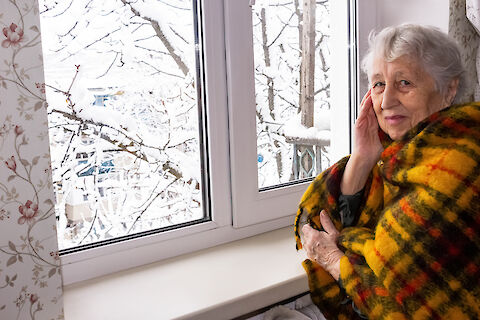
The winter season brings cooler temperatures, shorter days, and, for some seniors, the unfortunate onset of the "winter blues." This common term refers to feelings of sadness or depression that often arise during the colder, darker months of the year. Our senior loved ones are particularly susceptible to these feelings, as changes in daylight and weather can significantly affect their overall mood and well-being.
Understanding Winter Blues and Seasonal Affective Disorder (SAD)
The winter blues, clinically known as Seasonal Affective Disorder (SAD), is a form of depression that usually begins in late fall or early winter and fades as the weather improves. The symptoms tend to be similar to those of typical depression, such as feelings of hopelessness, lack of energy, difficulty concentrating, and changes in sleeping or eating patterns. However, it's important to differentiate between the winter blues and SAD. While the former is characterized by mild depression that improves with the arrival of spring, SAD is a more severe form of depression that might require medical intervention.
Strategies to Combat Winter Blues in Seniors
There are some ways to combat the winter blues, such as:
Exercise
One of the crucial steps in combating the winter blues in seniors is encouraging regular physical activity. Exercise not only increases energy levels but also boosts mood by promoting the production of endorphins, 'happy' hormones that can aid in combating mild depression. Always check with your doctor before starting new exercises.
Sunlight
Maximizing exposure to natural light can also play a significant role in keeping the winter blues at bay. Reduced sunlight during the winter months can disrupt seniors' body clocks, leading to feelings of depression. Therefore, opening curtains during the day and encouraging seniors to sit near windows can help them get as much natural light as possible.
Social Connections
Maintaining strong social connections is key to mental health, especially for seniors who may already feel isolated due to mobility issues or living alone. Planning regular visits, arranging phone or video calls, or helping seniors attend community events can all help foster a sense of connection and belonging during the winter months.
Seeking Professional Help
Even with the best efforts, sometimes professional help may be required to manage the winter blues or SAD. If a senior is showing signs of severe depression, such as persistent sadness, loss of interest in activities, or thoughts of death or suicide, it's crucial to seek assistance from healthcare professionals.
Senior Helpers Thousand Oaks Helps Seniors With the Winter Blues
Understanding and addressing the winter blues in seniors is crucial in ensuring their overall well-being during the winter months. By incorporating regular physical activity, increasing light exposure, fostering social connections, and maintaining a healthy diet, most seniors can successfully combat the winter blues. Yet, it's equally essential to recognize when professional help is needed.
If you're in Thousand Oaks, Westlake Village, Oxnard, or Newbury Park and notice your loved one struggling this winter season, don't hesitate to reach out to Senior Helpers Thousand Oaks. They are dedicated to providing the necessary attention and care to see your loved ones through this challenging time and into a cheerful spring season.